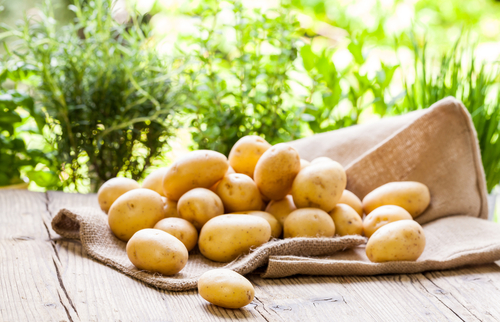 Researchers from McGill University in Canada say that extract of Irish potatoes rich in polyphenols can reduce weight gain even in high fat and refined carbohydrates diets.
Researchers from McGill University in Canada say that extract of Irish potatoes rich in polyphenols can reduce weight gain even in high fat and refined carbohydrates diets.
This results were incredibly surprising — so surprising that researchers had to repeat the experiment to be sure of what they were observing.
Mice were fed with an obesity-inducing type of diet for ten weeks, and researchers quickly found that those that started out with 25 grams of weight put on 16 grams. However, mice fed with the same diet but with potato extract included gained much less weight, about 7 grams. Researchers say that this phenomenon is due to the high concentration of polyphenol, which is an extremely beneficial chemical that exists in fruits and vegetables.
Professor Luis Agellon, author of the study, said in a press release: “We were astonished by the results. We thought this can’t be right – in fact, we ran the experiment again using a different batch of extract prepared from potatoes grown in another season, just to be certain.”
Obesity caused by overeating is still on the rise in Canada; it affects 1 in every 4 adults. Obesity is responsible for several diseases and health complications such cardiovascular issues and cancer. This study shows that potato extract can be a solution to prevent such conditions connected with obesity and diabetes.
Stan Kubow, lead author, said: “The daily dose of extract comes from 30 potatoes, but of course we don’t advise anyone to eat 30 potatoes a day as that would be an enormous number of calories.” The solution could be to provide a supplement or an ingredient that can be added in the kitchen. “In the famous French diet, considered to be very healthy, potatoes – not red wine – are the primary source of polyphenols. In North America, potatoes come third as a source of polyphenols – before the popular blueberries,” Kubon added. Most importantly, potatoes are inexpensive and already exist as part of many diets in several countries and cultures.
This study, published in the Molecular Nutrition & Food Research journal in late November, and funded by the Natural Sciences and Engineering Research Council of Canada, the Canadian Institutes of Health Research and the Canada Foundation for Innovation, was built based upon the personal research interests of the researchers involved.
To corroborate this discovery, clinical trials will serve as an important step to assess whether this phenomenon can also occur in humans and which are the appropriated doses for human consumption.


